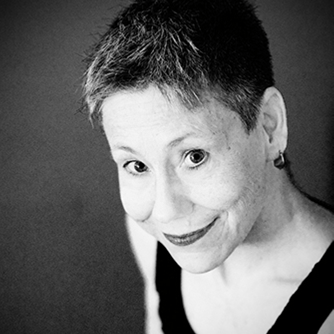Peter Bush has been translating the fiction of Teresa Solana since 2005, producing sparkling English versions of many of her stories and two of her comic noirs, A Shortcut to Paradise and A Not So Perfect Crime. Here the couple, both former directors of national translation centers, talk about writing, translating, and dismemberment.
Could you both talk about leaving your permanent positions to write/translate full time?
Peter Bush: Well, in the end it happened suddenly after we’d known each other for a long time. I became Director of the British Centre for Literary Translation in Norwich at the University of East Anglia and Teresa Director of the Spanish Translators’ House in Tarazona, Aragón, about the same time in 1997/98, and we met at a gathering of directors of European Centers in a castle in Budmerice in Slovakia, one of those old Soviet Writers’ holiday retreats.
Teresa Solana: We were both activists, liked organizing translation events, and soon I took Spanish writers and young would-be literary translators to the Summer School that Peter set up at the BCLT. I organized similar events in Tarazona. Young writers from the UEA Creative Writing MA would come and be translated by young translators from Barcelona. In fact, it was all very professional: we were fortunate to have posts that one hundred per cent involved promoting literary translation. And gradually one thing led to another.
PB: And translators’ centers not quite being the haven for inebriated romps as described in A Shortcut to Paradise… We began to live between the two cities and then we were going to have a child and immediately thought we should live either in Norwich or Barcelona. It took about ten seconds to decide on Barcelona. By this time, we’d been in post for some six years and simply felt we’d like to go back to being full-time literary translators.
TS: I’d written stories and novels in Tarazona that I’d never taken anywhere. After Clàudia, our daughter, was born, I started writing a different kind of novel, more satirical, with more humor. I’d never written noir before but these two characters Eduard and Borja came to me as just right for the kind of satire I wanted to write.
PB: Obviously, we’d never anticipated the economic crisis, and it was, and is, harder to make ends meet as freelancers. But books of Teresa’s were successful and I’ve had lots of great translation projects, have been able to take on classics and a wealth of Catalan literature.
TS: I’ve now published three novels and a book of short stories and been translated into several languages. I don’t regret not having to go to all those meetings or fill in those endless forms to raise funds for the Translators' House! And now, I can fight for the rights of translators from another position, being a writer.
Teresa, how does your background as a translator influence your writing?
TS: Very indirectly, I think. I generally translate essays, philosophy, nonfiction. I translated novels only after becoming a novelist myself. However, I think that reading fiction in translation has been and is very important. In Spain and Catalonia, we read lots of literature in translation and many writers draw on world literature as much as their respective national traditions.
Peter, do you consult Teresa when you're translating her work? If so, how do you work together?
PB: By the time I get a contract to translate Teresa’s work, I am very familiar with what’s coming. I read her first chapters and first drafts in Catalan. Teresa then translates herself into Spanish and I read some of that and we talk about lots of the issues involved. Spanish and Catalan are two distinct languages, and the translation of dialogue and humor in particular calls for imagination. I’ll consult with Teresa if I decide to do something really bold and she reads a couple of chapters or so, but generally she trusts me to be faithfully creative. As a translator, she works in a similar vein to me.
Peter, are you alarmed by Teresa's intimate knowledge of dismembering and concealing a body?
PB: I was surprised when I first read some of her more gory stories. How can she imagine such horror? I do worry sometimes when I hear her digging under the lemon tree in our patio at midnight She claims it’s to do with our cat. I’m not convinced. On the other hand, I know that she shuts her eyes when we watch a movie and there’s too much blood.
TS: In fact, I faint at the sight of a drop of real blood. When I go to see forensic police to ask specific questions about, say, the color or degeneration of a body after a certain kind of murder, they always invite me to visit the morgue and I always refuse their kind offers.








